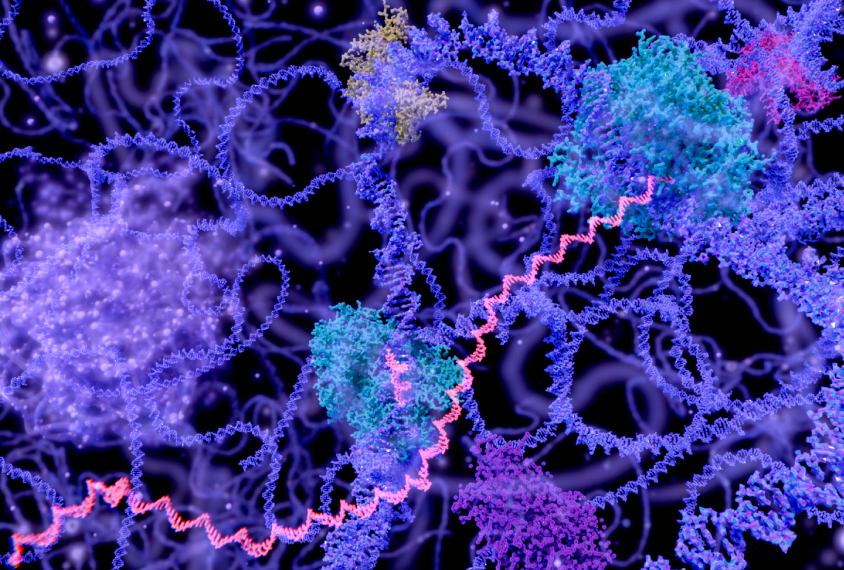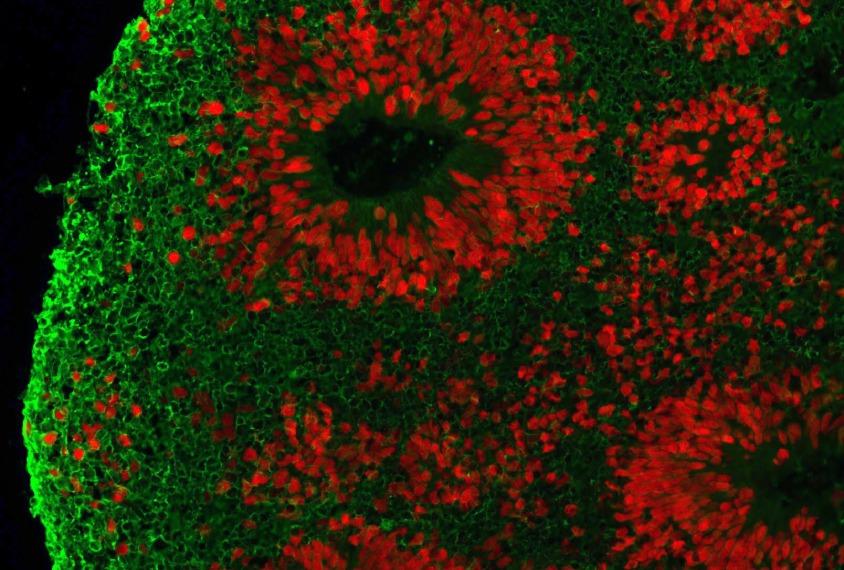ASHG 2019
Recent articles
Antidote to ‘poison’ DNA may treat lethal form of epilepsy
An experimental drug silences a DNA segment and seems to prevent seizures and death in a condition related to autism.

Antidote to ‘poison’ DNA may treat lethal form of epilepsy
An experimental drug silences a DNA segment and seems to prevent seizures and death in a condition related to autism.
Brain ‘organoids’ point to new drug target for fragile X syndrome
New findings hint at why drugs that work in mouse models of fragile X syndrome have not been effective in people.

Brain ‘organoids’ point to new drug target for fragile X syndrome
New findings hint at why drugs that work in mouse models of fragile X syndrome have not been effective in people.
Massive project doubles list of genes tied to autism
The largest analysis of sequences from autistic people and their families implicates 184 genes in the condition — nearly doubling the previous estimate.

Massive project doubles list of genes tied to autism
The largest analysis of sequences from autistic people and their families implicates 184 genes in the condition — nearly doubling the previous estimate.
Explore more from The Transmitter
Shifting neural code powers speech comprehension
Dynamic coding helps explain how the brain processes multiple features of speech—from the smallest units of sounds to full sentences—simultaneously.

Shifting neural code powers speech comprehension
Dynamic coding helps explain how the brain processes multiple features of speech—from the smallest units of sounds to full sentences—simultaneously.
Astrocytes orchestrate oxytocin’s social effects in mice
The cells amplify oxytocin—and may be responsible for sex differences in social behavior, two preprints find.

Astrocytes orchestrate oxytocin’s social effects in mice
The cells amplify oxytocin—and may be responsible for sex differences in social behavior, two preprints find.
Neuro’s ark: Spying on the secret sensory world of ticks
Carola Städele, a self-proclaimed “tick magnet,” studies the arachnids’ sensory neurobiology—in other words, how these tiny parasites zero in on their next meal.

Neuro’s ark: Spying on the secret sensory world of ticks
Carola Städele, a self-proclaimed “tick magnet,” studies the arachnids’ sensory neurobiology—in other words, how these tiny parasites zero in on their next meal.